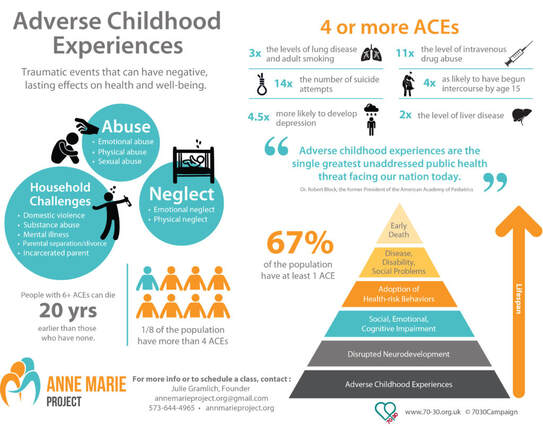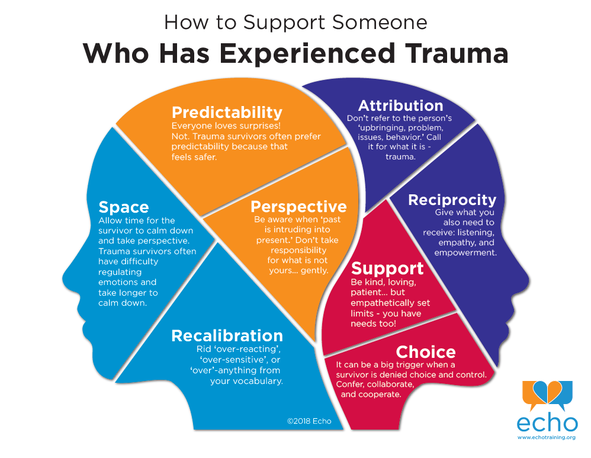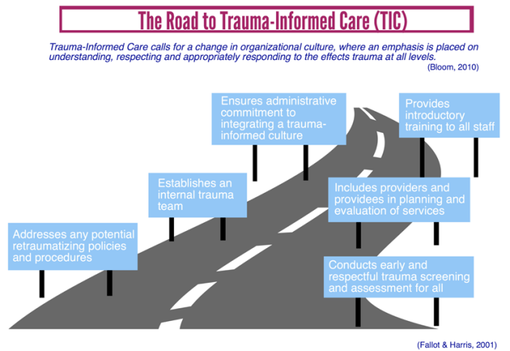|
Trauma-Informed Care is an approach that assumes that an individual is more likely than not to have a history of trauma. It recognizes the presence of trauma symptoms and acknowledges the role trauma may play in an individual's life. It's not used to treat symptoms or issues related to abuse or trauma, but rather to provide support services in a way that is accessible and appropriate.
When trauma occurs, it affects an individual's sense of self, their sense of others and their beliefs about the world. Being able to recognize the signs and symptoms of trauma can help us avoid the possibility of re-traumatization. What IS trauma though? Trauma is defined as a deeply distressing or disturbing experience. Each experience is different for each person; one experience may not be traumatizing for one individual, but it may be for another. Below is a list of Adverse Childhood Experiences that have a tremendous impact on future violence victimization and perpetration, and lifelong health and opportunity. ACEs: Emotional, verbal, physical, or sexual abuse Parental separation or divorce Substance abuse by household member Witness to domestic violence Household member with mental illness Neglect Incarcerated household member Toxic stress damages the structure and function of a child's developing brain according to neuroscientists and pediatricians at Harvard, Rockefeller University, and Child Trauma Academy. When children are overloaded with stress hormones, they're in fight, flight, or freeze mode. They can't learn in school, they often have difficult trusting adults, or developing healthy relationships with peers. Often they turn to drugs, alcohol, and other unhealthy habits to escape their problems. However, resilience research shows that the appropriate integration of resilience factors (asking for help, trusting relationships, forming a positive attitude, listening to feelings) can help people improve their lives. So what can we do? We can form a Trauma-Informed Care approach in the spaces we live and work. Below are resources that will help you under TIC more and apply it to your work or household. What is Trauma-Informed Care? - University of Buffalo Trauma-Informed School Trauma-Informed Classrooms and Transformational Schools Trauma-Informed Parenting Parenting a Child Who Has Experienced Trauma How to Cope with Traumatic Events Like Coronavirus What's Your ACE Score?
0 Comments
Leave a Reply. |
AuthorWrite something about yourself. No need to be fancy, just an overview. Archives
June 2022
Categories |




 RSS Feed
RSS Feed